Search Results
Showing results 1 to 18 of 18
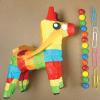
Family Math Activity: Measuring with Paper Clips and M&Ms
Source Institutions
In this activity, young learners and their caregivers use non-standard tools, like M&Ms and paper clips, to measure things around their home.

Cool It!
Source Institutions
In this fun hands-on activity, learners use simple materials to investigate evaporation. How can the evaporation of water on a hot day be used to cool an object? Find out the experimental way!
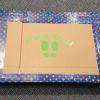
Paper Cup Stool
Source Institutions
In this activity, learners will explore how and why weight distribution works.

Can I Get Some Pi?
Source Institutions
In this activity, learners will explore pi and the mathematical relationships between a circle's diameter, circumference, and radius.
Stacking Dice
Source Institutions
In this math game, learners try to earn the most points by winning stacks of four dice. Learners practice number recognition and addition skills.
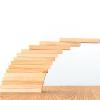
Take It From The Top: How Does This Stack Up?
Source Institutions
In this activity, learners explore center of gravity, or balance point, of stacked blocks.
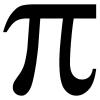
Applying Math to Astronomy
Source Institutions
In this mathematics activity (page 4 of the PDF), learners will explore the relationship between the diameter and circumference of an object.
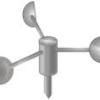
Paper Cup Anemometer
Source Institutions
In this meteorological activity, learners get to build their very own anemometer (instrument for measuring wind speed) using a paper cup.

Is it a Fair Game?
Source Institutions
In this math activity, learners play two versions of a card game and decide what makes a game fair. Learners also practice addition and subtraction skills.
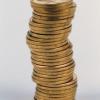
Bank It!
Source Institutions
This simple but open-ended math game introduces basic probability concepts using coins and dice. Players roll the dice and collect coins to match the number rolled.
Pom-Pom Probability
Source Institutions
In this math activity, learners predict how many pom-poms they can toss inside a circle from three feet away. Use this activity to help learners explore probability.
Measuring Rules
Source Institutions
In this math activity, learners create their own units of measurement by making noodle rulers. Learners practice estimating and measuring objects using the noodle rulers .

The Great Toss Off!
Source Institutions
In this math game, learners toss plastic cups to land just right and collect points to win.

Toss a Score!
Source Institutions
In this math game, learners toss plastic cups to land just right and collect points to win.
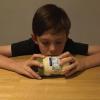
Unlocking the Secret in Product Codes
Source Institutions
In this activity, learners will explore how product barcodes are scanned accurately and be able to "guess" the last number in a 13 digit barcode correctly every time.
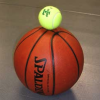
"Baseketball": A Physicist Party Trick
Source Institutions
This trick from Exploratorium physicist Paul Doherty lets you add together the bounces of two balls and send one ball flying.
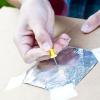
Measure the Sun's Size
Source Institutions
In this activity, learners make their own pinhole viewer in order to measure the size of the sun.
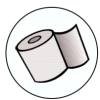
Toilet Paper Solar System
Source Institutions
In this activity, learners build a scale model of the solar system using a roll of toilet paper.
